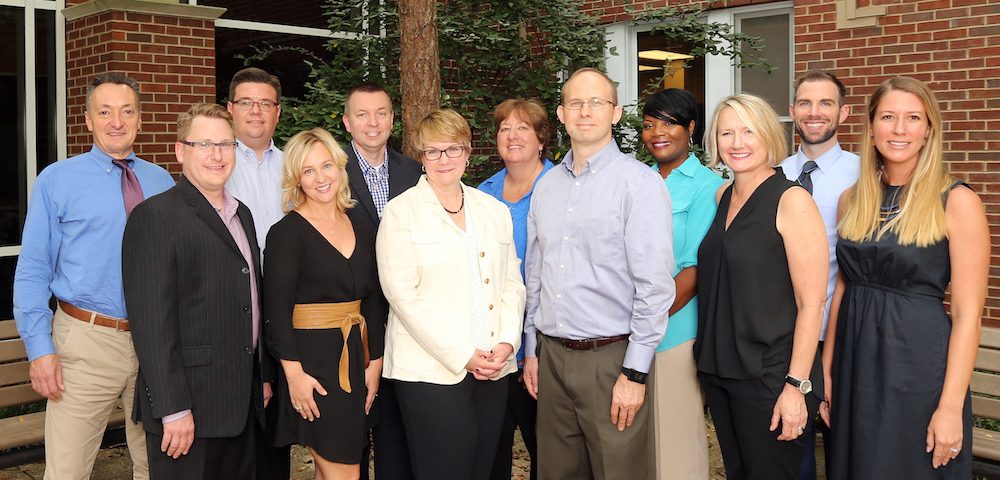History
From the day Vanderbilt opened, the university included speech courses in the curriculum. In 1875, Professor Edward Southey Joynes taught Exercises in Writing and Diction. In the following year, Professor Thomas J. Dodd offered a course in Rhetoric described in the 1876–77 course catalog thus, “Rhetoric will be taught, so far as practiced, both as a science and an art. Lectures upon speaking with frequent practical exercise on the same, including both the preparation and delivery of orations.”
Changes in the curriculum in the 1881–82 academic year expanded the topic as:
Oratory lectures:
(1) the true idea of eloquence; eloquence of the bar, of the legislative hall, of the popular assembly.
(2) study of the great masters in oratory; the cautions and limitation to be observed in such study; the best means of making it available in the training of the mind to shill in thought and expression.
(3) special helps in the composition of a discourse; the choice of a subject; analysis of the same, or how to think about when to make a correction.
(4) delivery-the natural manner, as distinguished from the artificial; delivery viewed as dependent upon the relations of thought and feeling to voice and action. Occasional exercise both in the composition and delivery of orations. We recommend to the student Blair’s lectures, Whately’s rhetoric, Campbell’s philosophy of rhetoric, Bautian’s the art of public speaking.
From 1895, sections of Elocution were taught at the elementary and advanced levels by Mr. Austin H. Merrill in both the academic and biblical departments. The elocution course was changed to Elocution and Oratory in the 1899–1900 catalog and taught by Professor Lafayette Rupert Hamberlin, who replaced Professor Merrill. Public Speaking and Debate was added in 1902–03 in the academic department by Professor Albert Mason Harris.
1904–05 brought an expanded curriculum to the biblical department, including Public Speaking, Argumentation, and Literary Interpretation, also taught by Professor Harris. Professor Harris began the academic year 1918 as the first Associate Professor of Public Speaking and Debate in the College of Arts and Science. Professor Hart joined Professor Harris in 1928, followed by Assistant Professor Miller in 1934. Professor Hart held budgetary and policy responsibility for programs grouped as humanities, which included forensics, theatre, art, music, band and chorus, and drama.
Courses in Public Speaking, Argumentation, Debate, and the History of Oratory continued to be taught, supplemented in some years by courses in Parliamentary Law and Speaking, Persuasion, Analysis and Speaking. In the 1940s, courses in Discussion Methods and Radio and Contemporaneous Speaking were taught. Jonathan W. Curvin, (Ph.D., Cornell) joined the faculty in 1941, as assistant professor of public speaking and drama, but took leave of absence for war service in 1946. He was replaced by Joseph Wright (Northwestern), who joined Professor Hart in 1947. Professor Robert Jones (M.A., Northwestern) came as an instructor of public speaking in 1948. In 1951, public speaking was changed to speech and Professor Tillman and Professor McConnell joined the faculty.
Chancellor Bennett Harvie Branscomb approved a proposal in 1952 to establish the Department of Speech and Drama on January 12, 1954, with Professor Joseph Wright as chair. The new speech curriculum offered Fundamentals of Speech; Parliamentary Law; Oral interpretation of Literature; Argumentation and Debate; Forms of Speech Making; History of Oratory, the Classical Period; History of Oratory, European and British; and History of American Public Address. By 1956, a students could choose speech and drama as their major course of study.
In 1964, Randall M. Fisher (Ph.D. Missouri) and Cecil Jones (Ph.D. Illinois) joined the faculty, Fisher to teach public speaking and Jones for drama. On Professor Wright’s retirement in 1977, Jones became chair. During his 11 years as chair of the department, students’ interest brought pressure for expansion of the curriculum. The faculty was allowed to grow slowly in response to this interest.
Through the next decade, courses were added—Rhetorical Criticism, the Rhetoric of the American Experience, Mass Media, Communication Theory, Interpersonal Communication, Values in Modern Communication. Once Professor Jones retired in 1988, Randall M. Fisher became chair, followed by Kassian Kovalcheck in 1992, John Sloop in 2005, Bonnie Dow in 2007, Claire Sisco King in 2017, Paul Stob in 2018, and Jeff Bennett in 2021.
